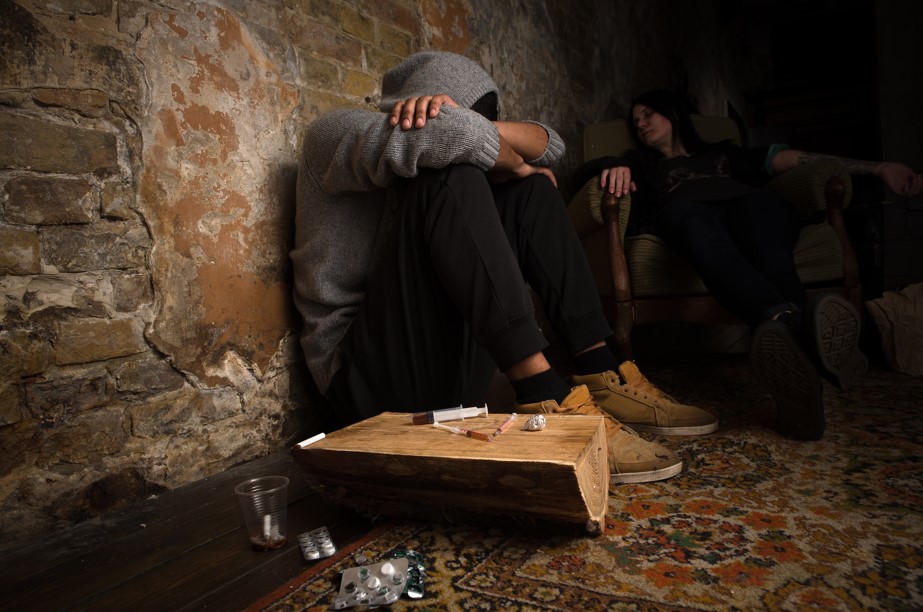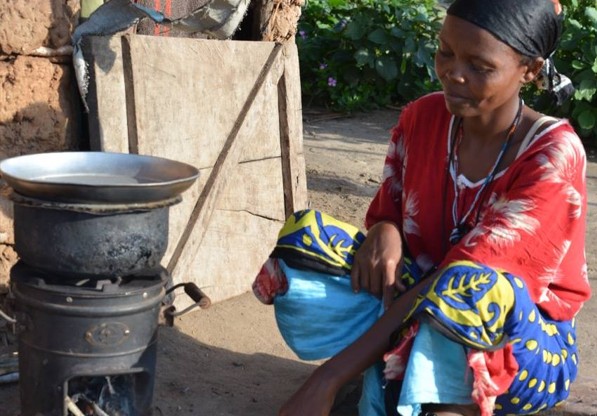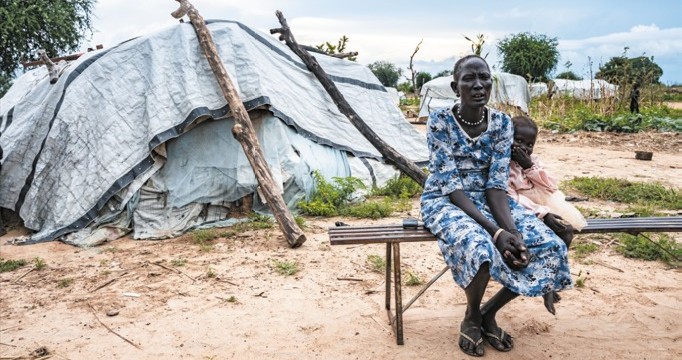Conquering relapses in drug, alcohol addiction amidst mental health challenges

According to a 2022 report by NACADA, one in every 20 people aged between 15 and 65 years in Kenya is addicted to drugs or substances.
Fifty-eight-year-old Jackson Mwendwa has endured a tumultuous battle with drug and alcohol addiction, which began in the slums of Majengo.
At just 13 years old, Mwendwa succumbed to the pervasive influence of his surroundings and began using drugs.
More To Read
- Mutua sounds alarm as drug abuse blocks coast youth from lucrative jobs abroad
- Violence is a normal part of life for many young children: Study traces the mental health impacts
- When birth brings heartbreak: Mothers share their stories of children with deformities
- Explainer: As mental health challenges rise, here is what you need to know about antidepressants
- Mental health advocates call for community-based support as economic strain deepens
- How to talk to your kids about mental health
At his current age, he reflects on the painful journey that saw him lose numerous family members, including his mother and brothers, to the perils of illicit brew, alcohol, and drug abuse.
Mwendwa started using drugs as a coping mechanism to escape the harsh realities of his environment. "I started using chang’aa as a way of coping with my challenges. I didn't want to think. Now, I use alcohol because I'm homeless. I sleep in schools and other streets, and alcohol makes me sleep better and forget my problems," said Mwendwa.
Mwendwa was raised in a village with a lot of negative influences, and he saw his mother die of alcoholism. His family's history of substance misuse had a great impact on him, sending him down a similar path. Over the years, Mwendwa experimented with many drugs, including bhang, tap-tap, and other illegal narcotics, often driven by peer pressure.
"I have tried most of the drugs like bhang, tap-tap, illicit brew, and many others," Mwendwa admitted. His addiction nearly cost him his life during a devastating flood that destroyed his home and claimed his neighbour's life. "I'm so grateful that day I was not drunk, but my neighbour who was intoxicated was very unlucky and died in the process," said Mwendwa.
Struggles
Despite efforts by his family to send him to rehabilitation, Mwendwa resisted and continued his struggle with addiction. He managed to stop using some drugs, like tap-tap, due to severe hallucinations.
In 2017, he contracted tuberculosis and briefly stopped using illicit brew and drugs for seven months. However, the stresses of life and peer pressure pushed him back into the grip of alcohol.
“I had stopped drinking for those seven months, but whenever I met friends, I used to drink with, they would buy me alcohol. Not wanting to offend them and be stigmatised, I would indulge, and gradually, I fell back into the trap,” he said.
Mwendwa's life took another downturn when he began selling drugs, a venture influenced by older boys in the slum. "Staying away from drugs was hard because the older boys used to tell me to sell on their behalf, and as a result, I got involved in most of the drugs," he explained.
His life saw a glimmer of hope when he joined a youth group, that gave him a sense of purpose and a way of making an income. Unfortunately, the demolition of the group's workspace drove him back to alcohol for solace. "Currently, I can't sleep without using chang'aa," he said.
Mwendwa's alcohol addiction has taken a heavy toll on him, leaving him despondent. His family has abandoned him, leaving him to fend for himself. He is now homeless after his home was swept away during the March flash floods.
Psychologists observe that many mental health patients experience relapses when returning to familiar environments, often due to the associations tied to those places. To facilitate proper healing, patients must change their surroundings.
 According to a 2022 report by the National Authority for the Campaign against Alcohol and Drug Abuse (Nacada) one in every 20 people aged between 15 and 65 years in Kenya is addicted to drugs or substances. (Photo: Shutterstock)
According to a 2022 report by the National Authority for the Campaign against Alcohol and Drug Abuse (Nacada) one in every 20 people aged between 15 and 65 years in Kenya is addicted to drugs or substances. (Photo: Shutterstock)
Jackline Araya, a medical social worker at Mathare Hospital, highlights the challenges patients with mental illnesses face. "There is stigma associated with mental health conditions, many family members don’t understand the issues, and even after educating them, many still don’t want to support their relatives,” said Araya
Araya notes that the scepticism among relatives often stems from the high cost of medications.
"Many family members are wary, especially due to the expense of the drugs. This financial burden contributes to a high rate of relapse," she said. The lack of coverage by the National Health Insurance Fund (NHIF) exacerbates the problem. "The medications are usually not covered by NHIF, and many patients can’t afford them. As a result, they often stop taking their medication, leading to relapse."
Environmental triggers also play a crucial role in the relapse cycle. "Once patients return to the environments that initially contributed to their condition, the same triggers can cause setbacks," Araya explained.
She urges families to change their perceptions of mental health. "Patients need to stay on their medication, and with proper support, they can work and be useful members of society," Araya emphasised.
According to Dr Mercy Karanja, the head of the Division of Mental Health at the Ministry of Health notes that Mathari Hospital has approximately 45 per cent of relapse cases and readmissions which are attributed to stigma, poor adherence to medication, and lack of medication availability.
 Dr Mercy Karanja, Consultant Psychiatric Clinical Head during an interview with The Eastleigh Voice at Mathari National Teaching and Referral Hospital. (Photo: Justine Ondieki)
Dr Mercy Karanja, Consultant Psychiatric Clinical Head during an interview with The Eastleigh Voice at Mathari National Teaching and Referral Hospital. (Photo: Justine Ondieki)
"Families often do not prioritise purchasing medication, and isolation and neglect further increase individuals' susceptibility to relapse," Dr Karanja explained.
Historically, older-generation medications, which were less expensive but had more side effects, were used. However, "newer medications with better outcomes and fewer side effects have been introduced, although they are more costly," she noted.
She noted a shortage of data in mental health care provision for guiding policy development, with existing studies being fragmented. To rectify this, the ministry plans to conduct a national mental health survey to establish prevalence rates and determinants of mental health in Kenya.
In 2020, the Ministry of Health launched a task force on mental health, highlighting depression and anxiety disorders as prevalent in the country, closely followed by substance use disorders.
According to a 2022 report by the National Authority for the Campaign against Alcohol and Drug Abuse (Nacada), substance abuse is a significant concern in Kenya.
The report reveals that one in every 20 people aged between 15 and 65 years in Kenya is addicted to drugs or substances, with approximately one in every six individuals in this age group using at least one drug or substance of abuse.
Alcohol consumption is widespread, with approximately one in every eight Kenyans aged 15-65 years (around 3.2 million people) currently consuming alcohol.
Nacada notes a significant portion of the population experiences varying degrees of depression, affecting approximately one in every three Kenyans for minimal depressive disorders, one in every seven for mild depressive disorders, and smaller proportions for moderate and severe cases.
Top Stories Today















































